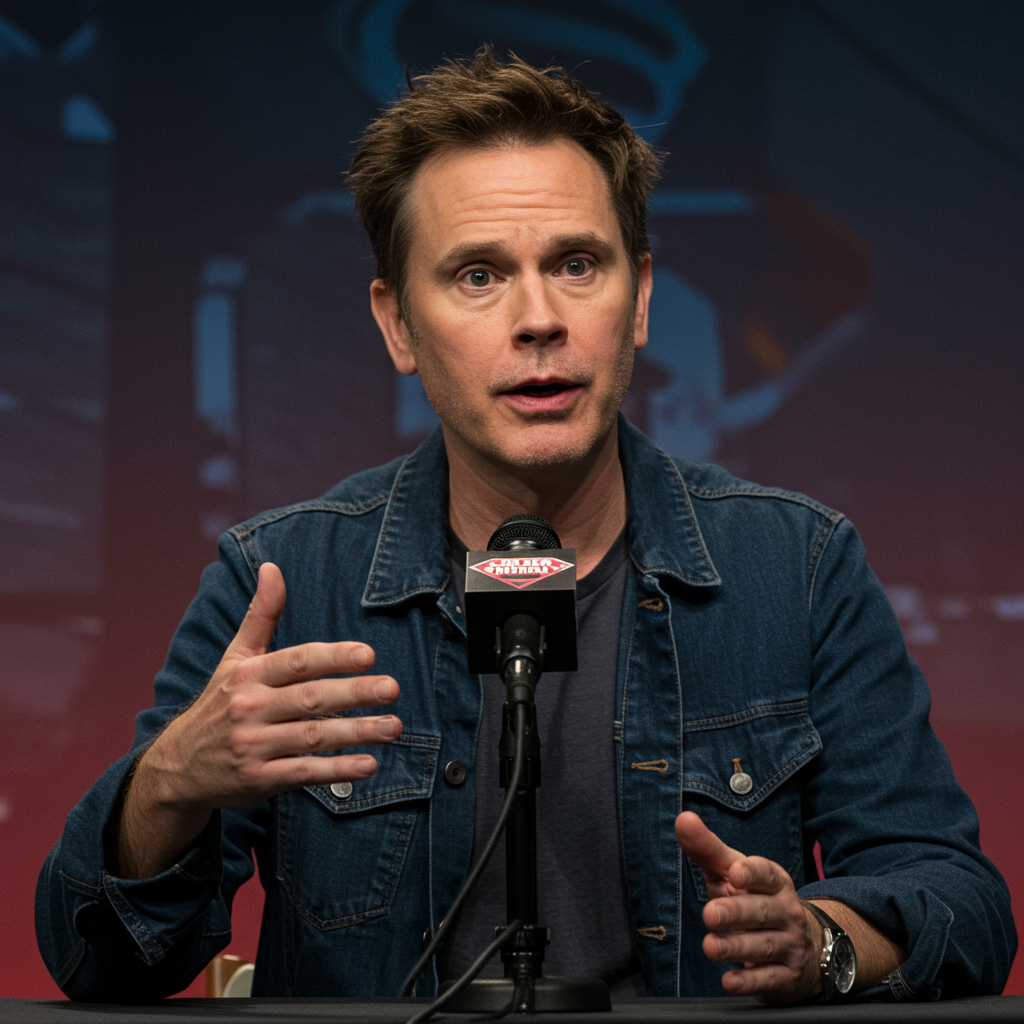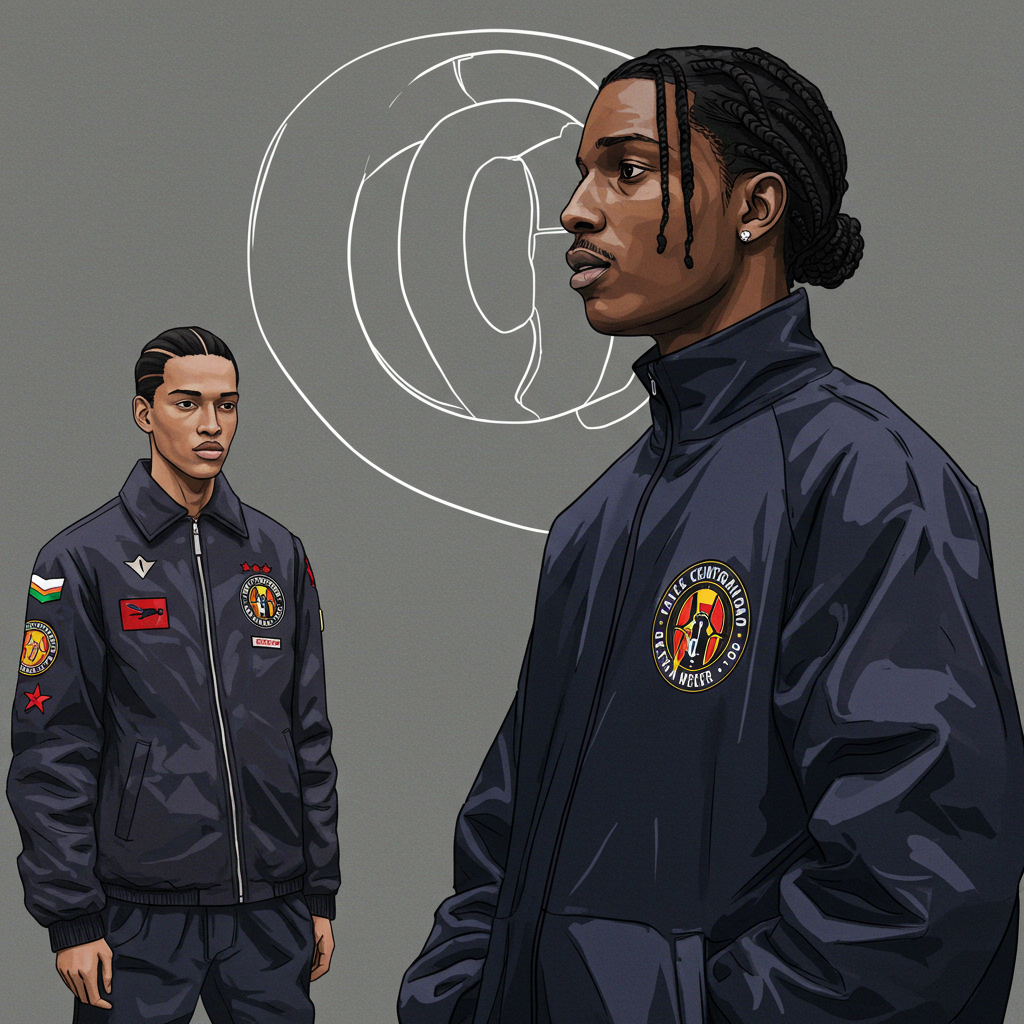James Gunn, co-CEO of DC Studios and the visionary director behind the upcoming superman film, is framing his take on the iconic hero around two fundamental pillars: the immigrant experience and the profound importance of basic human kindness. This perspective isn’t new to the character, long understood as a powerful allegory for those who come from somewhere else seeking a better life. Gunn emphasizes his movie stays true to this foundational concept established by Superman’s original creators back in 1938.
Superman’s journey, arriving on Earth as Kal-El from a dying planet and being raised as Clark Kent in Smallville, is inherently a narrative about adaptation and integration. It mirrors countless real-world stories of individuals navigating a new land and culture. The connection is particularly poignant given the history of his comic book originators, Jerry Siegel and Joe Shuster, who were second-generation Jewish immigrants. Their personal backgrounds undeniably influenced the creation of a hero who is powerful, yet an outsider, striving to protect a world that is not his birthright but his chosen home. Gunn points out that, on a fundamental level, Superman embodies the story of America itself—a nation populated by people who journeyed from other places.
Beyond Allegory: Championing Basic Human Kindness
While the immigrant narrative is central, Gunn stresses that for him, the heart of the film is primarily about something even more universal: basic human kindness. He posits that this value is something society seems to have significantly diminished or “lost” in recent times. The film aims to put this simple, yet powerful, concept front and center.
In interviews, Gunn has lamented the current cultural climate, which he describes as increasingly harsh, particularly online. He notes that many cultural figures, himself included at times, contribute to a pervasive “meanness.” This environment, filled with what he calls “millions of people having tantrums online,” makes it difficult for culture to progress and creates a disorienting sense where discerning reality is challenging for the human mind. Telling the story of a character like Superman, who is depicted as “uniquely good,” feels particularly necessary and timely in this context of widespread cynicism and a perceived loss of hope in others’ inherent goodness.
Navigating Politics and Morality on Screen
Gunn acknowledges that a film centered on themes like immigration and kindness might be interpreted through a political lens, especially given prevailing sentiments regarding immigrants and refugees in various regions. He anticipates that the message “plays differently” depending on one’s political viewpoint. However, he stands firm in the film’s core message, stating that while some might find the focus on kindness “offensive,” he isn’t concerned about those negative reactions, bluntly dismissing potential critics he characterizes as unkind.
Beyond the political surface, Gunn explains that the film delves deeply into morality. A significant point of exploration in the movie involves the relationship between Clark Kent (played by David Corenswet) and Lois Lane (Rachel Brosnahan). Their dynamic highlights a core moral tension: Superman’s absolute stance against killing (“Do you never kill no matter what”) contrasted with Lois’s potential belief in needing “some balance” or different approach. This fundamental disagreement on basic moral principles is presented as a key element that could test and even potentially strain their relationship. Gunn emphasizes that the film is “really about their relationship and the way different opinions on basic moral beliefs can tear two people apart.”
The Film’s Narrative Landscape
Set for release on July 11, the movie features David Corenswet stepping into the blue suit as Superman/Clark Kent. The film finds Clark already established as a reporter at the Daily Planet in Metropolis and in a relationship with Lois Lane. The plot reportedly sees the Man of Steel, potentially alongside his trusty flying dog Krypto, drawn into conflicts both domestically and internationally. As public opinion towards him shifts, he must also contend with tech billionaire Lex Luthor (Nicholas Hoult), who spots an opportunity amidst the chaos. The cast also includes notable actors like Maríá Gabriela de Faría as The Engineer, Nathan Fillion as Green Lantern (Guy Gardner), Skyler Gisondo as Jimmy Olsen, and Isabela Merced as Hawkgirl, indicating a wider DC Universe presence.
While aiming to balance weighty themes with entertaining family appeal, Gunn reiterates that telling a deeply human story remains the ultimate goal. His hope is not necessarily to change the world with one film, but rather that Superman might, in some small way, inspire a few individuals to be “just a bit nicer” to each other after watching it. This modest aspiration underscores the film’s core emphasis on the power and necessity of simple kindness in a complex world. The exploration of Superman’s dual heritage—Kryptonian alien and Kansas farm boy—provides a rich canvas to examine these themes of belonging, identity, and the moral choices that define us, regardless of where we come from. The narrative challenges both the hero and the audience to consider what it truly means to be good and how fundamental values hold up under pressure.
The Timeliness of a Good Samaritan
Gunn’s choice to highlight Superman’s “uniquely good” nature feels particularly resonant now. In an era often characterized by division and online hostility, a figure who embodies hope, truth, and altruism can serve as a powerful counter-narrative. The film’s focus isn’t just on grand heroic feats, but seemingly on the quiet strength and moral conviction that drive Superman’s actions. It asks the audience to consider the source of true strength – is it immense power, or is it the unwavering commitment to doing what is right and being kind?
The discussions within the film, such as the ethical debate between Clark and Lois regarding the use of lethal force, ground the heroic fantasy in relatable moral complexities. It forces the audience to confront difficult questions alongside the characters, exploring the grey areas even when faced with a seemingly black-and-white moral code like Superman’s. This approach elevates the material beyond a simple superhero origin story, embedding it with relevant social and ethical commentary. It’s a story designed not just to entertain, but perhaps, just slightly, to provoke thought and reflection on the values we hold dear and how we treat one another.
Frequently Asked Questions
Why does James Gunn emphasize Superman as an immigrant story?
James Gunn highlights Superman as an immigrant story because the character, Kal-El, arrives on Earth from another planet and adapts to a new world, paralleling the experience of immigrants. He notes this interpretation aligns with the backgrounds of creators Jerry Siegel and Joe Shuster, second-generation Jewish immigrants. Gunn sees it as fundamentally reflecting the “story of America,” a nation built by people from different places, making Superman an inherent allegory for adapting and belonging in a new land.
What does James Gunn mean by “basic human kindness” in the film?
For James Gunn, “basic human kindness” is the core value his Superman film champions, a quality he feels is diminishing in contemporary society, particularly in online interactions marked by meanness and tantrums. He views the character as “uniquely good” and feels telling this story now is important because of a perceived loss of hope in others’ goodness. The film aims to serve as a reminder of the importance and power of simple kindness.
How does the film explore morality through Superman and Lois Lane’s relationship?
The film explores morality significantly through the dynamic between Clark Kent/Superman and Lois Lane. Gunn points to a key moral conflict where Superman believes in absolutely never killing, while Lois might hold a different perspective suggesting a need for “some balance.” This divergence on fundamental moral beliefs is central to their relationship in the movie, illustrating how differing ethical viewpoints can create tension and potentially impact the bond between two people.
References
- deadline.com
- variety.com
- <a href="https://www.imdb.com/pt/news/ni65366963/?ref=nmnwr_1″>www.imdb.com
- www.hollywoodreporter.com
- www.thewrap.com


